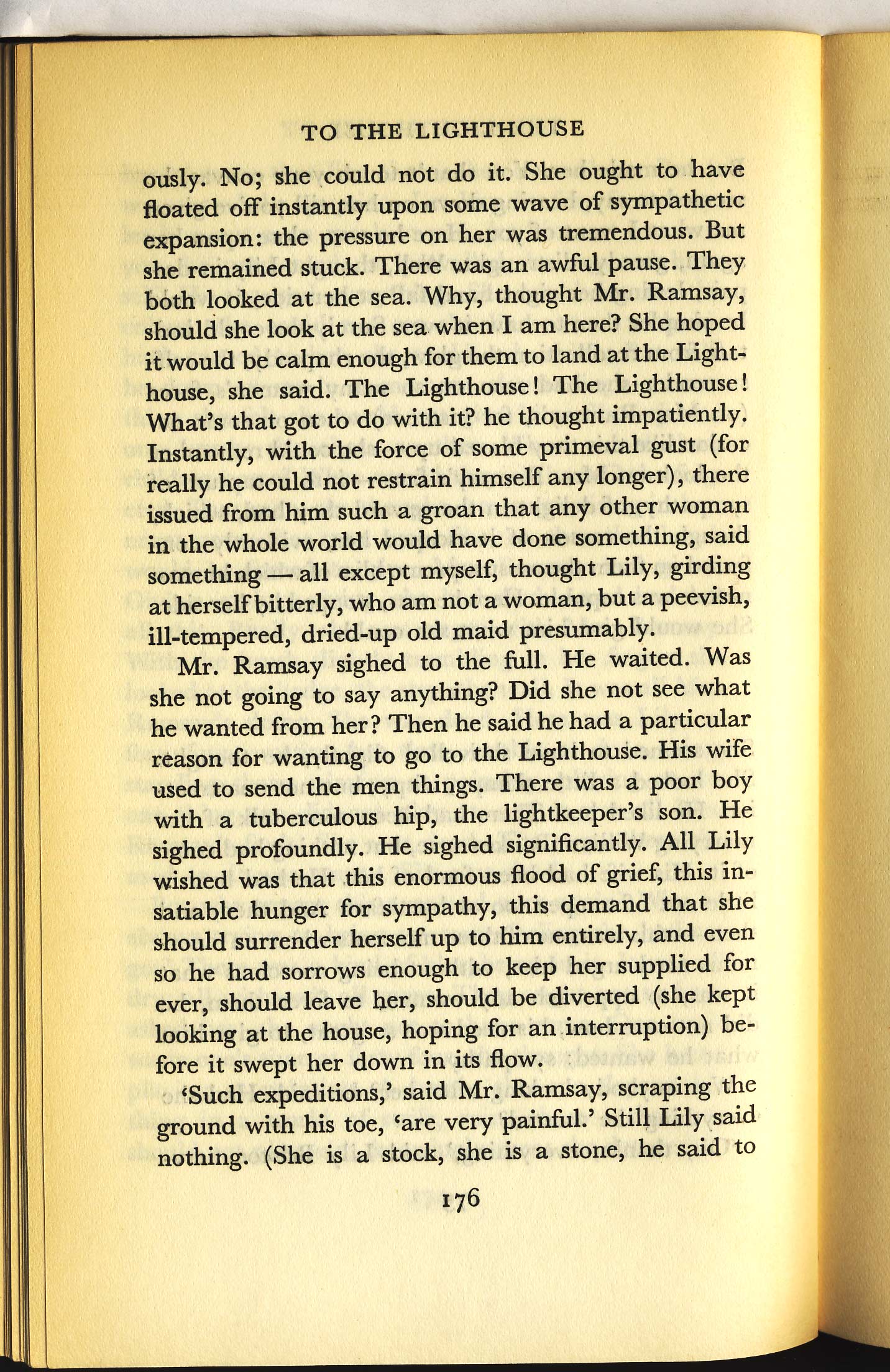
TO THE LIGHTHOUSEously. No; she could not do it. She ought to havefloated off instantly upon some wave of sympatheticexpansion: the pressure on her was tremendous. Butshe remained stuck. There was an awful pause. Theyboth looked at the sea. Why, thought Mr. Ramsay,should she look at the sea when I am here? She hopedit would be calm enough for them to land at the Light-house, she said. The Lighthouse! The Lighthouse!WhatŌĆÖs that got to do with it? he thought impatiently.Instantly, with the force of some primeval gust (forreally he could not restrain himself any longer), thereissued from him such a groan that any other womanin the whole world would have done something, saidsomething ŌĆö all except myself, thought Lily, girdingat herself bitterly, who am not a woman, but a peevish,ill-tempered, dried-up old maid presumably.Mr. Ramsay sighed to the full. He waited. Wasshe not going to say anything? Did she not see whathe wanted from her? Then he said he had a particularreason for wanting to go to the Lighthouse. His wifeused to send the men things. There was a poor boywith a tuberculous hip, the lightkeeperŌĆÖs son. Hesighed profoundly. He sighed significantly. All Lilywished was that this enormous flood of grief, this in-satiable hunger for sympathy, this demand that sheshould surrender herself up to him entirely, and evenso he had sorrows enough to keep her supplied forever, should leave her, should be diverted (she keptlooking at the house, hoping for an interruption) be-fore it swept her down in its flow.
ŌĆśSuch expeditions,' said Mr. Ramsay, scraping theground with his toe, ŌĆśare very painful.ŌĆÖ Still Lily saidnothing. (She is a stock, she is a stone, he said to176









